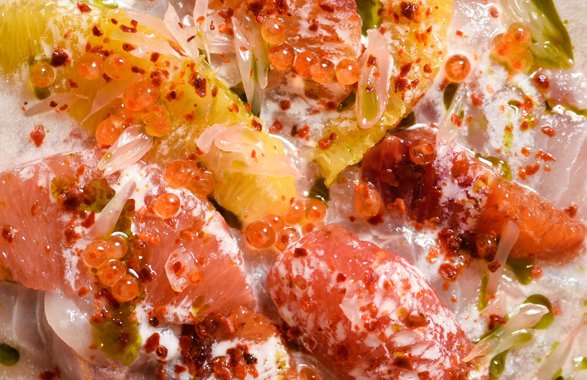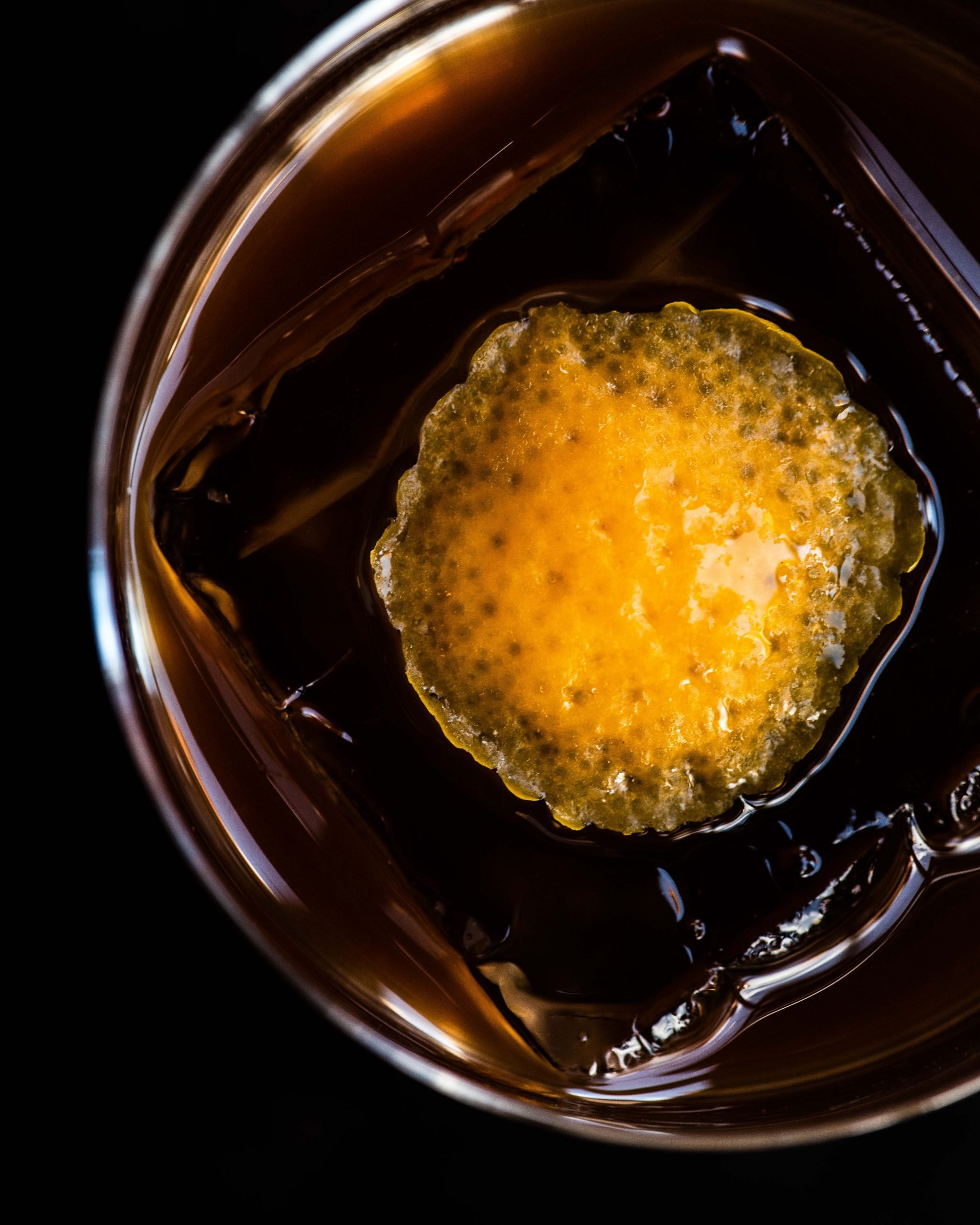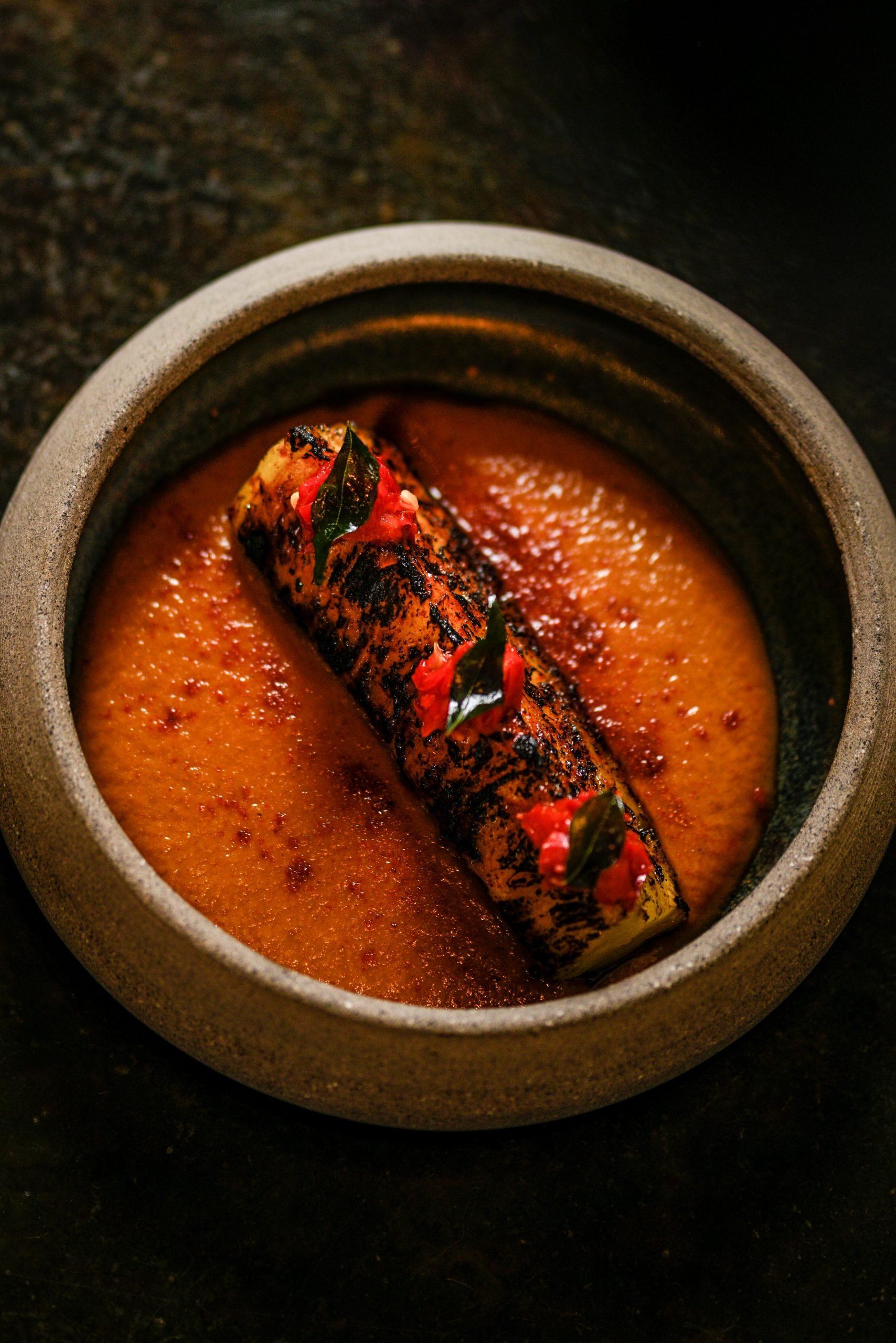Wish You Were Here: I’m in Paradise
Paradise, the Sri Lankan hotspot in Soho, sure gets a lot of press.
There have been scores of reviews, many of them the refined work of the crème-of-food-journo crop. And they’ll make you really, really hungry.
These writers go into forensic analysis over the menu, although forensic language is not what they use. Theirs is the mouth-watering lingo of the ultra-gastronomique. I get ‘sensuously spice-scented’ from veteran Tom Parker Bowles at The Daily Mail; elegant phrasings like ‘fresh green peppercorns for a surprise high note’, from Tim Hayward for The Financial Times; while a blog called The Picky Glutton practically bursts into poetry when describing the mutton rolls as a ‘genre-defying meaty treat’ with ‘punchy heat’.
Should you wish to read entirely perfect portraits of Sri Lankan staples, please visit the reviews linked above. Meanwhile, I’m going to try my luck and say something a little different about Paradise. What I’d like to focus on is the mind behind it.
There are different kinds of restaurant owners. The Big Shots only pop in a couple of times a year to check on their business concern (one of many). They demand streamlined efficiency and profit margins modelled in Excel.
Then there are chefs who open their own restaurants or have them opened under their name. And while these can be impressive shrines to the culinary arts, they are forever at risk of being eclipsed by ego.
Occasionally, there are those like Dom Fernando.
Occasionally, there are those like Dom Fernando. Part ambitious entrepreneur, part cool-kid, what defines Dom (if he can be defined) is his charisma, which makes him instantly likeable to every person who comes through his door; and his passion, which is apparent to anyone who hears him talk about food.
If Dom’s traits were laid out like the recipes of his already-famous dishes, it would suddenly be clear how a narrow little space in one of London’s most prohibitively priced postcodes has become such a fast success.
As mentioned, his love for what he does counts big time. It’s so good to see people who care about their job this much. It beams out of him like nuclear radiation, brightening every sultry corner of the dinner service. After graduating, Dom says he did what ‘all Asian parents want from their sons’ and became an accountant. Yet his passion for hospitality was so strong that he ditched numbers to join Intercontinental Hotels, working in destinations as far flung and sought-after as Singapore and Dubai.
This rich, velvety layer of enthusiasm is a bit like icing, for it coats the shrewd business mind underneath. Able to identify a gap in the oversaturated London food scene, Dom’s niche is Sri Lankan food, still relatively untapped, with a few notable exceptions (such as Hoppers in Marylebone). With this ace up his sleeve, he then made sure to lean into the trends that people love to see, not the ones they’re tired of.
Dishes are designed around fresh, quality ingredients. Portions are small, allowing for the ever-popular sharing plate concept. The interior is totally unexpected and very Instagrammable. It even has an educational backstory: the design is a nod to tropical brutalism, an architectural style prevalent in Sri Lanka’s capital of Colombo, courtesy of their most famed architect, Geoffrey Bawa.
But even this mixture wouldn’t rise without Dom’s consideration towards his staff. As much as ethics gets bandied about these days, we all know the realities of work, which are especially harsh in the high-pressure hospitality environment. It is therefore gratifying to overhear Dom’s words of encouragement to staff (one can’t help eavesdropping – space is limited!), seeing the way he throws himself into service if waiters are overwhelmed, and hearing the way his own employees speak of him. Hands-on and level-headed; these are worthy trimmings. Yet here’s another staple of his that might go unnoticed: nerves of steel. And it is perhaps this quality, more than any other, that has sustained Paradise.
Not only did Dom open his first permanent venture smack in the middle of rent-extortionate Soho (‘Go big or go home!’ he tells me), but soon after taking the plunge, the pandemic lockdowns started. Central London was cleared of its lucrative tourists and deserted by locals. ‘I’ve never seen anything like it, and hope I never will again’, Dom says. ‘When you’re in restaurants, it’s simple. You need people coming in.’
‘Go big or go home!’ He tells me
Having weathered the storms of 2020, Paradise is now jam-packed every night, with queues winding round the corner. Though it hasn’t come without a post-pandemic and Brexit cost. ‘People in hospitality are problem solvers,’ Dom says, ‘we’re constantly forced to change how we do things. Prices are going up for ingredients, but we’re trying not to pass on that cost to customers. That means we have to be inventive. When sourcing meat, for instance, we buy lesser-known cuts, as they’re cheaper but still full of flavour.’ There you have the final garnish in what is no longer the secret recipe of being a successful restauranteur: versatility.
And the great thing about this Paradise is that we all have a chance of getting in.




